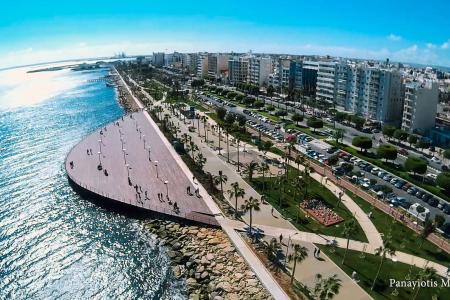FOR WHO IS THIS COURSE FOR?
- This course is recommended for non-native English speakers teaching English to students aged 10 upwards.
- It is also suitable for teachers of CLIL, Business English and English for Specific Purposes.
- Primary teachers may attend the course with reference to older primary pupils preparing for secondary education.
OBJECTIVES:
This is a hands-on, practical course designed to give an insight into current language teaching methodologies as well as improve language teaching practice by presenting various techniques and methodological approaches to teaching English as a Foreign Language. Participants will be given the opportunity to look into changes and trends in the language itself.
PREPARATION. PRE -COURSE PREPARATIVE MODALITIES:
- On-line Language Level Assessment
- Needs Analysis
- Online resources and reading material
- Cultural heritage information
PRACTICAL ARRANGEMENTS. INTRA-COURSE MODALITIES OFFERED BY THE COURSE PROVIDER:
- Course Tutor
- Pedagogic Learning Materials Included
- Exchange of Best Practice
- Participants’ Evaluation Feedback
- Pastoral Care, 24 hr Emergency Number
- Optional Cultural Activities and Visits
FOLLOW UP. POST-COURSE MODALITIES:
- Europass Mobility
- Post-Course Facebook Forum
- A Certificate of Attendance and Achievement
COURSE CONTENT AND STRATEGIES:
The input sessions are a blend of theory and practice in ELT using lecture format and practical activities based on Task Based Learning and Communicative Language Teaching. They aim to equip participants with ideas and materials that can be used with their own students as well as provide exercises to refine their own command of the language.
Throughout the course, participants are given the opportunity to consider alternative practices, reflect on their own practices and try out a variety of classroom activities. Included is a focus on how to use technology in the classroom and exploring the use of multimedia for teaching purposes. During the course, participants will be expected to come up with their own Personal Development Action Plan, and select activities which they would like to try out in their own class.
COURSE TOPICS:
A) Drama
Drama benefits students in many ways in the language classroom, particularly those who may be shy, it builds confidence, develops language skills and enables students to use English and take risks from “behind a mask”. This session covers all aspects of using drama in the classroom, from basic mime to role play, from simulation to improvisation.
B) Communicative Language Teaching
We look at ways CLT can be used to make learning meaningful as it emphasises the need for interaction. We show participants how to implement learning strategies to improve language acquisition and make learning purposeful.
C) Pronunciation and Intonation
Pronunciation practice is exciting, interesting and meaningful. As a neglected skill in language teaching we bring it back into the class to show how beneficial it is to enable students to speak comfortably. Pronunciation is instrumental in improving listening ability and making oneself understood. No matter how good grammatical competence, knowledge of vocabulary and overall fluency are, misunderstandings can occur if there are pronunciation inaccuracies.
D) Task-based Learning
Instead of focusing on grammar acquisition and competence we show participants how to focus on the use of authentic language and to provide opportunities for students to exchange information with a focus on meaning.
E) ICT
Through examples, discussions, reviews and practices participants will be shown the numerous ways in which ICT can be integrated into everyday teaching so as to develop confidence in managing and utilizing ICT into the language classroom
F) Project Based Learning
Get a taste of what project-based learning is all about and how it can be incorporated into the classroom. Find out which tools best help integrate PBL into the language classroom, how to monitor and assess students, and how to design projects
SAMPLE PROGRAMME:
1) Monday:
- Welcome Testing and Evaluation
- Warmers, fillers and coolers and their value
- Overview of current methodologies
2) Tuesday
- The Communicative Approach
- Activities to Develop Listening Skills
- Activities to Develop Reading Skills
3) Wednesday
- Get them Talking! Encouraging your students to speak
- Songs and Jazz chants
- Free afternoon for self-studies: Creating a CLT Lesson
4) Thursday
- The benefits of ICT
- Exploiting the Internet
- Task-based Learning
- Teaching Vocabulary
5) Friday
- Engaging, motivating, inspiring the Learner: Getting the best out of your students
- Looking at multi media
- Free afternoon for self-studies: Preparing a TBL lesson
SATURDAY OR SUNDAY: CULTURAL TRIP (Full Day Excursion)
6) Monday
- Amplifying the use of videos and you tube in the classroom
- Setting up on-line activities
7) Thursday
- Bringing Drama into the classroom
- Project Based Learning – what and how
8) Wednesday
- Project practice: Bringing children’s stories into the classroom
- Pronunciation and Intonation
9) Thursday
- Designing a project using a variety of best practices
- Grammar practice activities
10) Friday
- Formal Vs informal (speaking and writing)
- Free afternoon for self-studies
- Course closure
OUTCOMES:
- Gain a better understanding of English language teaching with practical experience
- Expand and build on your own knowledge to use a range of practical methodologies
- Be introduced to both new and established areas of teaching methodologies and accompanying techniques
- Develop teaching strategies to meet the challenges of 21st century skills
- Discover technology to use in your own classroom
- Be exposed to multi- media for teaching purposes
- Be given the opportunity to reflect on your teaching style
- Further develop your own English language skills
- Establish professional cooperation and links
- Expand social networking and exchange of best practices
Przykładowe zajęcia dodatkowe:

beach games, beach volleyball, bowling *, climbing *, diving *, extreme sports *, horse riding *, kitesurfing *, mountain biking *, mountain hiking, snorkeling, surfing *, water sports, windsurfing *, go-karting *

boat cruises *, cinema afternoon/evening, city tour/walk, conversation practice, cultural activities, cultural events and festivals, dance lessons/workshops, dinner in a typical restaurant *, film evenings, games nights, guided museum tours, guided walks, international evenings, jeep safari *, live music / music nights, museum visits, orientation tour, shopping, sightseeng, theme workshops, visits to music festivals, escape room *

Traditional Village Excursion *, Kalidania Waterfalls *, Agia Napa *, Akamas Jeep Safari *, Sparti Adventure Park *, Omodos Mountain Village *, Nicosia *, Limassol Zoo *, Donkey Farm *, Camel Park *
* zajęcia dodatkowo płatne
Akredytacje













